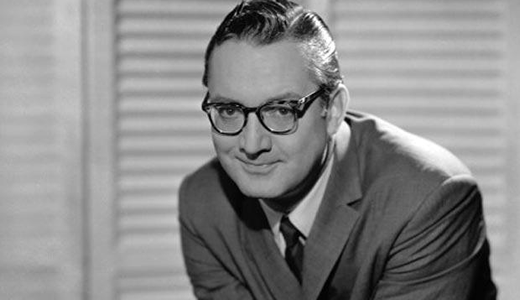About 64 years ago this month, announcer/comedian Steve Allen began hosting a little 40-minute program on New York’s WNBT-TV. It was called The Steve Allen Show at first, but when NBC decided to pick up the program and take it nationally the following year, the network renamed it Tonight Starring Steve Allen. After Steve Allen left and when a young guy named Johnny Carson stepped in as host in 1962, it became known simply as The Tonight Show.
Allen’s contribution to television extended far beyond the creation of The Tonight Show, though. He spent nearly 50 years on the tube in one way or another—and as his career progressed, he became ever more concerned with the increasing levels of vulgarity on the medium that made him famous.
Allen died in 2000, and television has grown exponentially more vulgar since then—which makes Allen’s concerns all the more prescient.
In 1999, Plugged In tracked down the 1950s’ talk show pioneer to discuss his passion regarding television’s moral decline. I spoke with this respected TV pioneer about the medium he loved and helped shape during a kinder, gentler era. Because I believe that Allen’s concerns are still valid now, we’re re-running that interview today.
Bob Waliszewski: When did you become concerned about the cultural shift toward more vulgar entertainment.
Steve Allen: In the late ’80s, the tidal wave of vulgarity, sleaze and shock from both radio and TV became so apparent that no longer could anyone be unaware of it. It’s an uphill battle. Now the boundaries of freedom—what is permitted by the Federal Communications Commission, station owners or network owners—has stretched far past the point of being sensibly defensible. In the old days illegal, immoral or revolting behavior generally got you out of show business very quickly. Evil is now being rewarded.
Waliszewski: What do you believe is behind that downward spiral?
Allen: As long as people are making a buck by putting Howard Stern on their station, they’re apparently willing to consider no other vector when asked to justify their decision. They point out that he gets big ratings. So do the dozens of “little Howard Sterns,” as I call them, who now pop up around the country. The boundaries have been trampled over. Recently, I was invited to address, in a sense, the entire Canadian television industry [notorious for pushing the envelope] at their annual convention. To my pleasant surprise, about 85 percent of them agreed with me.
Waliszewski: Why is it that our culture feels that things have to be vulgar to be humorous?
Allen: The American people are getting dumber. That’s just my hunch. Sadly, it’s all well documented. The question is, “How did we get this dumb?” We sure are dumb, but how did it happen?
Waliszewski: It seems winning this battle will require social conscience on the part of both conservatives and liberals. Would you agree?
Allen: Absolutely. The Christian conservative camp has long been active, to their great credit. Some people think that it’s [a conservative issue] and nobody else has to be concerned. That’s a very ill-advised position. I find that many people—parents, grandparents, educators—are becoming involved in this because it splashes mud on little children and kids in high school.
Waliszewski: Are you getting support from your peers in the entertainment industry?
Allen: Not long ago I was a guest on Larry King Live, along with [fellow television pioneers] Sid Caesar and Milton Berle. We didn’t go on the program to discuss this issue, but it was brought up by Larry and it turned out that all three of us agreed. Tim Allen of Home Improvement also called and said, “Good for you. We wrestle with this problem on our show all the time about which joke is okay and which joke is too raunchy.”
Waliszewski: When you talk about using entertainment responsibly, I think we agree that it doesn’t mean avoiding controversial subjects altogether, correct?
Allen: It is possible to discuss something that is inherently innocuous and yet to be revolting in your treatment of it, or yet to discuss adultery or any aspect of sex in a responsible, civilized and even moral way. It isn’t so much the subject matter; it’s how it’s treated. The point is that the Howard Sterns of the world don’t even respect sex. They prefer the more depraved forms. Again, if they want to go to a place and do that in private, that’s none of my business. It’s everybody’s business when our children are brought into those discussions and those displays.






Recent Comments